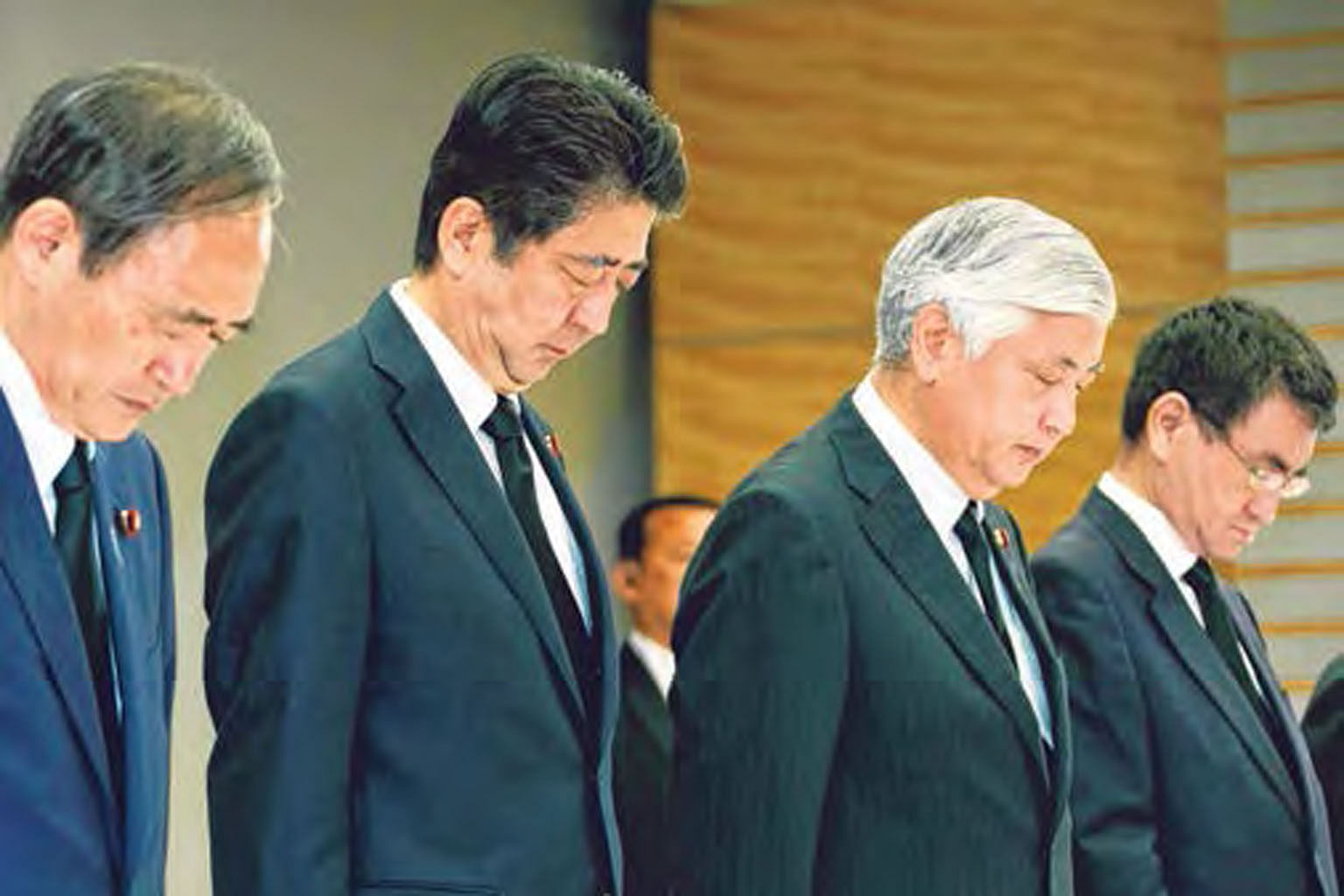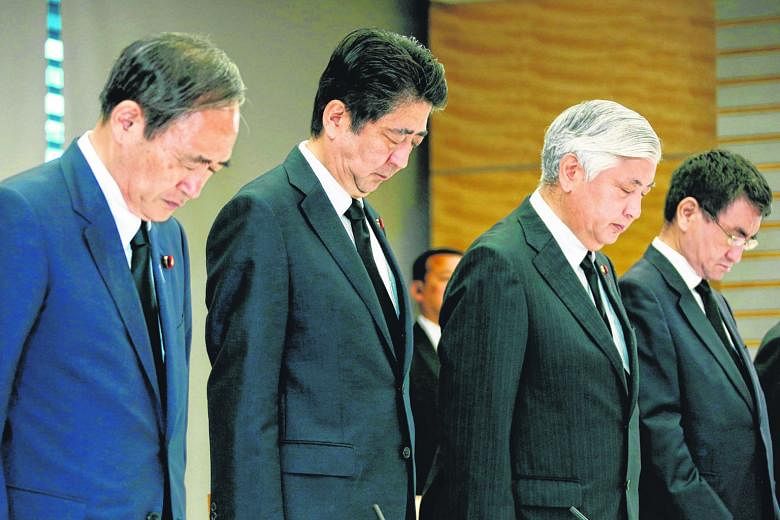Despite the death of seven Japanese aid workers in the Dhaka siege last Friday, opposition parties are putting pressure on Prime Minister Shinzo Abe in the run-up to this Sunday's Upper House election not to rewrite security laws that will give the country more powers to protect itself and its citizens.
They have vowed to block any attempts by Mr Abe to revise the Constitution to allow Japan to exercise its right to collective self-defence and go to the aid of any ally under attack.
Mr Abe had alluded to the possible change at a rally after the Bangladesh attack, when he stressed he will take "all possible means" to ensure the safety of Japanese citizens around the world.
"We'd like to join forces with the international community to root out terrorist acts. We will firmly secure the safety of Japanese nationals both at home and abroad," he said last Sunday.
He had said last year, after two Japanese citizens were beheaded by Islamic State in Iraq and Syria extremists, that he wanted to grant Japan's military, the Self-Defence Forces, the right to "rescue Japanese nationals from crises overseas", noting that there were "many Japanese workers with non-governmental organisations around the world".

But during election campaigning which started on June 22, the Prime Minister shied away from explicitly talking about beefing up the Self-Defence Forces' mandate in new security laws he wants to pass, and which involves amending the pacifist post-war Constitution.
This comes even as Kyodo news agency, in a stern rebuke earlier this week, said Japan faces the "harsh reality that it lacks the capacity to ensure the safety of its citizens from terrorism abroad".
It is an open secret that Mr Abe wants the ruling coalition of the Liberal Democratic Party (LDP) and Komeito to secure two-thirds of seats in the Upper House. The bloc already controls the Lower House, and achieving the same in the Upper House would be a step towards constitutional revision.
To stop this, four opposition parties have - in an unprecedented show of unity - banded together to field joint candidates in every single-seat ward. They include the main opposition Democratic Party and Japan Communist Party.
But experts say this dalliance amounts to a "marriage of convenience", given the parties' differing stance on security, among other issues.
The anti-military Japan Communist Party believes the very existence of the Self-Defence Forces is unconstitutional.
Party chief Kazuo Ishii told reporters on Monday: "You cannot eradicate terrorism through war. As history tells us, we will only create a vicious circle by continuing down this path, and so we need to carry out political diplomacy in which police and judicial institutions hunt down terrorists."
And while tensions in North-east Asia are a potential flashpoint, he said the region should learn from Asean and work towards establishing a Declaration on the Conduct of Parties to prevent conflict from escalating over territorial claims.
Japan is embroiled in a territorial dispute with China over the Senkaku/Diaoyu islets in the East China Sea. It also has conflicting claims with South Korea over the Takeshima/Dokdo islets in the Sea of Japan, also known as the East Sea, and with Russia over the Northern Territories/Kuril islands north of Hokkaido.
"If Japan were to face a military threat with a military response, then it would get into a vicious circle. Therefore we need to establish a rule in this region that regardless of the problem, it will be resolved through diplomacy," Mr Ishii said.
The Democratic Party of Japan, which has reportedly described its alliance with the communist party as "temporary and opportunistic", sings a different tune.
Party chief and former foreign minister Katsuya Okada has said that he is a "realist" and the Self-Defence Forces should be activated if the country comes under direct attack.
But the LDP-Komeito coalition is also an "odd alliance" that has differed on many issues, political watcher Jeffrey Kingston of Tokyo's Temple University told The Straits Times. "The big difference is that in trying to unseat the ruling coalition, the opposition could undermine itself because of its lack of unity," he said.
With opinion polls showing the ruling coalition with a huge lead, Professor Kingston believes there is a good chance that it will win the two-thirds majority it wants.
"Then, Mr Abe will have to stop pussy-footing around his plans for revising the Constitution."

